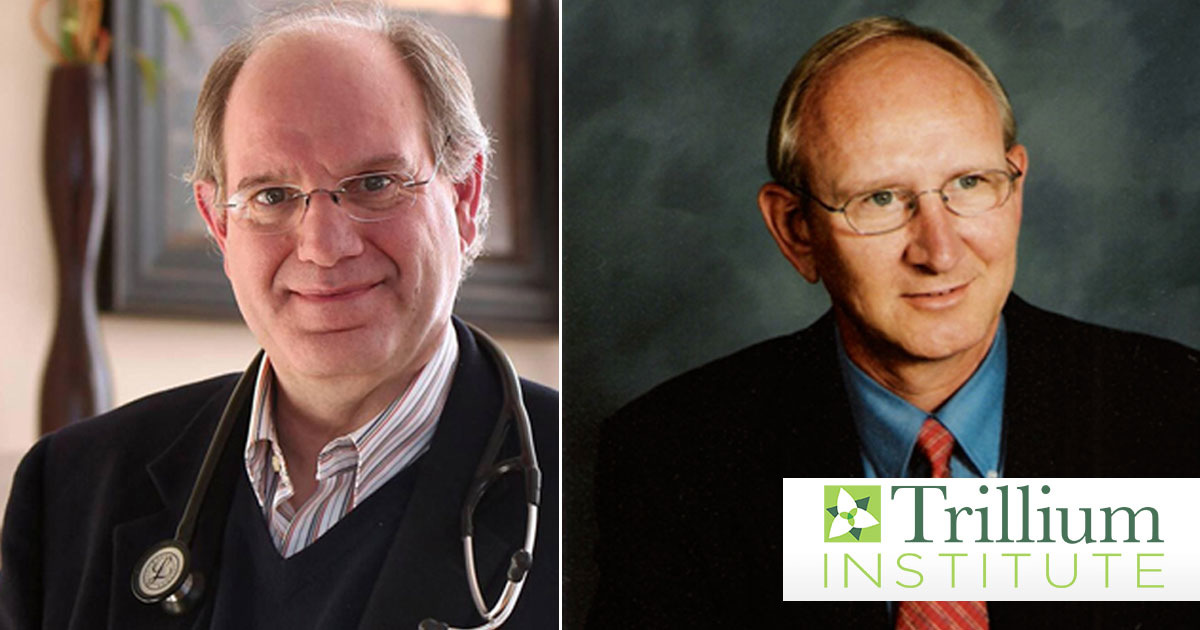Newly launched in 2014, in affiliation with Holland Home, Trillium Institute's focus is improving quality of life, and assisting patients and their families in navigating decisions and challenges associated with facing a serious diagnosis.
By offering a variety of services to the West Michigan community and the broader medical community, the institute's executive director, Ken Hekman, and medical director, Dr. John Mulder, hope to raise awareness and change perspectives about what it means to be diagnosed with a "life-defining" condition.
Dr. Mulder, who is a nationally recognized authority on end-of-life issues and pain management, is a board-certified palliative medicine specialist. What does that mean, in laymen's terms? "My job is to make sure you're having a great day," Mulder said. For him, that involves making sure that patients are not living in fear. Complex symptom management, helping people plan for the future, and even assisting patients in strategies to feel well enough to attend a special family event ... it all factors into Mulder's care. "I'm focused on the relief of suffering—achieving hope, peace, and purpose in patients' lives."
Drs. Mulder and Hekman's aim is to reach both the professional community and the community at large with an important message: "A bad diagnosis doesn't have to equal suffering. Patients can focus on living well, no matter their prognosis." Demystifying the process of managing symptoms, truly understanding prognosis, and understanding the hospice process all play a role. Providing support for patients whose condition may not be life threatening, but is life defining (such as fibromyalgia or neuropathy) is also a goal. Support may include connecting patients with chaplains, social workers, and other professionals, in addition to medical treatment of symptoms. "People need navigators," Hekman said.
Navigating the process is easier, too, if patients have already thought about what they envision for their care, and expressed their wishes to their family. "The best time to talk about your mortality is when you're feeling great," Mulder said. "Have conversations with your spouse and your children. Take the opportunities in day-to-day life to talk about it, in addition to creating an advanced directive. Make a plan—make it clear."
"There's a disconnect in people's understanding. Life can still be lived well, in the face of a life- defining diagnosis. Our mission is to help," Hekman said.
For more information about the Trillium Institute, click here.
Upcoming events include:
Osher Lifetime Learning Institute at Aquinas College
January 22, 2015, at 9:30 a.m.
Visit [email protected] for directions/map.




